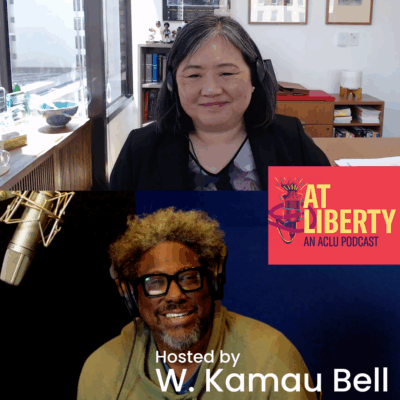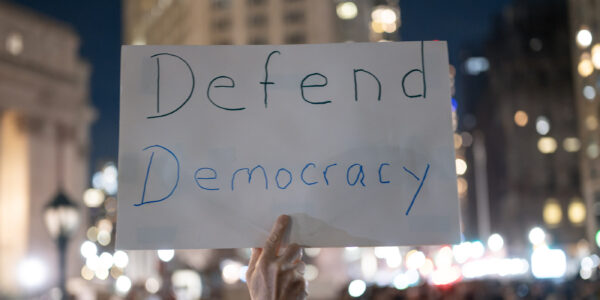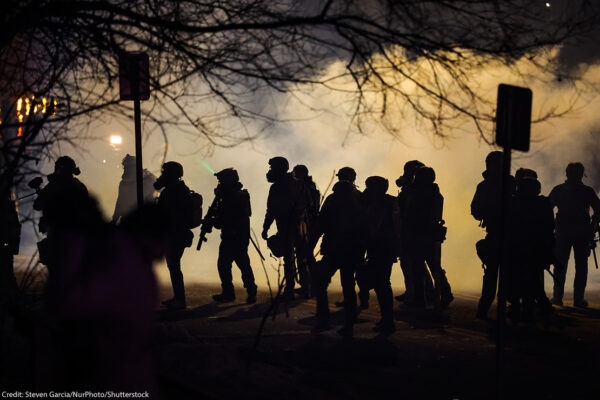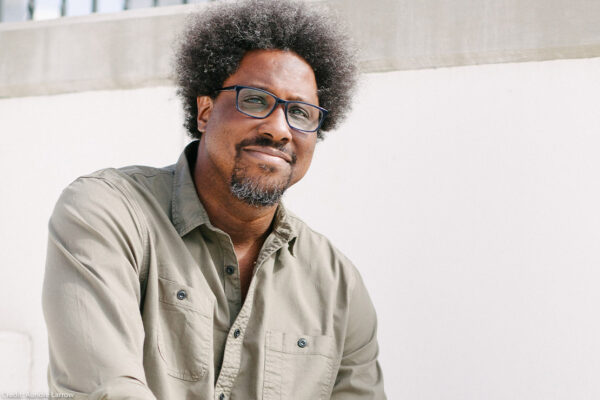At Liberty Podcast

At Liberty Podcast
We’re Still Ready: Trump’s First 100 Days with Cecillia Wang
May 9, 2025
We talk a lot on At Liberty about knowing our rights, but since Donald Trump returned to office, where do those rights stand? This week, the ∫Ï–” ”∆µ‚Äôs National Legal Director Cecillia Wang joins Kamau to make sense of Trump‚Äôs first 100 days, from the more than 140 executive orders he signed to the more than 100 legal actions the ∫Ï–” ”∆µ has filed since January. Plus, listeners share their questions on immigration rights, freedom of speech, and how we can stay prepared for what‚Äôs ahead.
In this episode
This Episode Covers the Following Issues
Related Content
-
New Mexico Supreme CourtFeb 2026

Civil Liberties
Atencio V. State Of New Mexico. Explore Case.Atencio v. State of New Mexico
This case asks whether the State of New Mexico’s actions enabling pollution from oil and gas extraction, and its failure to control that pollution, violate the New Mexico Constitution’s Pollution Control Clause, Inherent Rights Clause, Due Process Clause, and Equal Protection Clause. Our brief urges the New Mexico Supreme Court to answer those questions by retiring its “interstitial approach” to state constitutional interpretation—which looks first to federal doctrine when interpreting state constitutional provisions that arguably have U.S. Constitutional analogues—and instead interpreting the New Mexico Constitution holistically and independently. This independent approach, we explain, will ensure that New Mexicans can enjoy—and enforce—the rights guaranteed to them in their unique founding document.Status: Ongoing -
News & CommentaryJan 2026

Civil Liberties
One Year In: Defending The Constitution Under A Second Trump Administration. Explore News & Commentary.One Year In: Defending the Constitution Under a Second Trump Administration
From blocking unconstitutional orders to mobilizing millions, here’s how we fought back and what comes next.By: Anthony D. Romero -
News & CommentaryJan 2026

Civil Liberties
Trump’s Threat To Invoke The Insurrection Act, Explained. Explore News & Commentary.Trump’s Threat to Invoke the Insurrection Act, Explained
President Donald Trump is threatening to invoke the act, which is a rarely used power that Congress intended only for extreme emergencies. We break down what this means for our civil liberties.By: ∫Ï–” ”∆µ -
Utah Supreme CourtJan 2026

Civil Liberties
Fuja V. Stephens. Explore Case.Fuja v. Stephens
This case asks whether government officials who intentionally violate the law are immune from damages suits under a state statute governing such suits, and if so, whether the statute itself violates the Open Courts Clause of the Utah Constitution. Utah’s Open Courts Clause, like similar provisions in thirty-nine other states across the country, protects an individual’s right to seek judicial remedies for wrongs committed against them. It therefore serves as an important tool that does not exist in the U.S. Constitution to hold government actors accountable.Status: Ongoing

